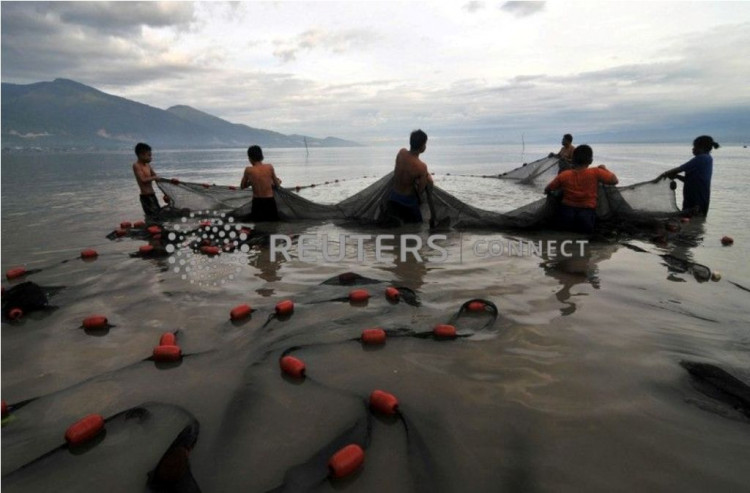Indonesia is a coastal country that largely depends on fishing to drive the economy forward. However, analysts pointed out that there is a lack of communication in appropriate regulations within the sector, hampering growth in the country's largest industry.
Poor management of Indonesian fisheries is an issue that needs prompt attention, Asia Media reported. Problems stemming from the country's fisheries industry have been negatively impacting the environment, community health, and the overall economy, the report indicated.
According to the outlet, further mismanagement of Indonesian fisheries could result to bigger problems in the future such as food supply insufficiency, fish extinction, health concerns from consuming contaminated fish, and significant losses in the country's economy.
Activists in the fisheries sector have started calling for reforms to be implemented as soon as possible. They requested the government to communicate policies appropriately so entrepreneurs in the industry will be encouraged to improve their processes.
Furthermore, activists noted that Indonesia should establish a clear regulation or scheme that will lessen the negative impact of water pollution. They said reduced pollution in Indonesian waters will help pump up activities in the fisheries sector and this will result in the industry's increased contribution to the country's overall gains.
To address the issue, Indonesian nonprofit organizations (NGOs) have been helping fisheries obtain certification from the Marine Stewardship Council (MSC). Part of the efforts in this regard is the move of pressuring local governments to assist fisheries in ensuring that marine firms applying for certification are utilizing processes that prove to be safe and sustainable.
Last week, it was reported that Indonesia is now second to Japan in the top ranks of countries that use handline and pole fishing methods. These strategies eliminate the risk of overfishing that stems from fishing through large netting walls.
President Joko Widodo's government has been battling with perceptions of Indonesia's alleged poor fishery practices. The administration also had to ease doubts on potential human trafficking activities after it was revealed that the country employs 3.3 million Indonesians in the sector.
Despite problems in the fisheries industry, Indonesia dethroned other rivals as it bagged the top spot of the world's largest producers of tuna. In 2018, the country accounted for 16 percent of the world's overall tuna production.
As the 2019 election nears, some analysts and activists for the fisheries sector expressed their insights on the campaigns of this year's presidential candidates. Most of them suggested that both incumbent Widodo and his rival, Prabowo Subianto, have not provided solid offers for the fisheries industry so far.
Many industry experts said the presidential candidates should also provide a strong position on supporting the sector, especially in terms of sustainability, safety, and empowerment of small-scale fishermen who need further assistance to become significant contributors in the Indonesian economy.





